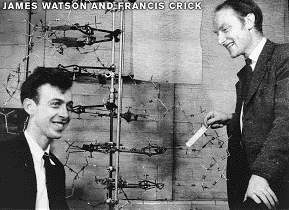AT TIMES,
ELSI seems like the Charlie Chaplin character in Modern Times, running itself ragged to keep up with a machine that it can barely control. On a wintry December morning, the ELSI Working Group's Genetic-Testing Task Force has convened at a Baltimore hotel to discuss an urgent concern: the unleashing of genetic-screening kits into the marketplace. As the primary government body looking into this question, ELSI's insights should matter. But how can a mere task force-a subcommittee of a subcommittee-keep from losing its place along the bureaucratic paper trail? Then there's the question of timing: Gene-screening kits pinpointing everything from cystic fibrosis to breast cancer are already being marketed to doctors.
Despite these challenges, the twenty-three-member group is moving ahead with an effort to establish standards for genetic testing. Representatives of academia, medical associations, and the biotech industry are part of this discussion, a dicey one because it is set in the context of a national debate over breast cancer gene screening-a debate spurred, in no small measure, by the investigations of ELSI panels. The first gene linked to breast cancer, called BRCA1, was discovered in 1994. A second, BRCA2, was found in 1995. Since then, researchers have identified hundreds of different mutations in both genes. In other words, there is no single "bad gene," but a panoply of genetic variants, with little of predictive value understood about each one. Moreover, an ELSI-commissioned panel of experts reported to the genome center last May that neither mammography nor chemotherapy nor radical mastectomy was clearly effective in response to a positive BRCA test. The great race to unpack the breast cancer gene had led to a virtual crapshoot. (A few scientists like Theodore Friedmann of UC-San Diego had actually foreseen this impasse back in the Eighties and had charged that genome scientists were unwise to concentrate resources on isolating genes before their function was understood. Such arguments were ignored.)

|
This afternoon, the Genetic-Testing Task Force is considering whether some genetic tests, like those for breast cancer, are simply too complicated for family physicians to administer. Should a special board certify doctors to offer gene tests? Or should testing be performed only by specialists? The physicians in the crowd, in line with a representative from OncorMed, a Maryland biotech company, all oppose licensing. But Nancy Press, a UCLA anthropologist invited to join the panel because of the ethnographic studies she's done among cancer patients, holds out for making the most difficult testing procedures solely the terrain of specialists. "The physicians I've talked to are uniformly unaware of the statements made by professional societies on how to use BRCA," she says. "It's very worrisome. That's not meant in an accusatory way. They don't have bad hearts or anything. But there's a big gap in knowledge about BRCA, and in the meantime you have these mass mailings by laboratory companies urging doctors to give the tests."
A physician suggests a middle way: Why not simply provide genetic-testing protocols to doctors through the Internet? "You're going to meet a fire wall of opposition if you try to tell a doctor he can't do a simple test," he says.
Finally, a panelist representing managed care tosses in a splash of cold commercial reality that puts it all in perspective. "I don't think you'd want to try to license who gives these tests," he says, "when the fact is they'll probably be selling home kits soon." (This panelist may be right-the FDA has signaled its disinclination to get involved in regulating gene tests.)
In the end, panel chair Dr. Neil Holtzman, a Johns Hopkins epidemiologist, tables the discussion and asks his staff to prepare recommendations for a vote at the next meeting. The hope is that, ultimately, ELSI's protocols will be followed by professional societies that advise physicians. But it's only a hope. Indeed, while the Genetic-Testing Task Force reveals the scope of ELSI's ambitions, it also highlights the program's limits. Nobody here would challenge the value of searching for breast cancer genes in the first place, even though the dilemma under discussion arose from that effort. In a sense, the task force performs what sociologist Philip Pauly terms "corporate quality control" for molecular genetics: Its mode is reactive-evaluating gene-screening kits rather than, say, judging scientists' grant applications. "They made the decision at the beginning that they weren't going to study the science and the scientists," says Berkeley anthropology professor Paul Rabinow, who examined the biotech industry in his 1994 book Making PCR. Yet the science, he says, "is what generates the ethical issues."
As a result, some observers argue that ELSI's policy proposals are all but irrelevant. "You're in a poor position to do ethical review if you only do it once products are on the market," says Glenn McGee, a bioethicist at the University of Pennsylvania. But Eric Meslin, current director of ELSI's research program, defends this ad hoc approach. As he sees it, the task force's job is "not to be ethics police, but to create an environment where people have the best chance of thinking about ethical issues when they arise."


